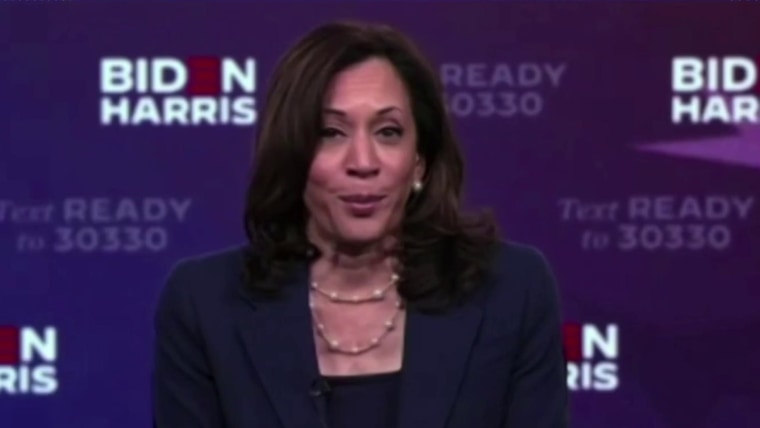Joe Biden can read the same polls the rest of us look at, so he knew he didn't need to throw a Hail Mary pass when it came to his selection of a running mate.
That, in and of itself, is good news for him. As I wrote a few weeks ago, there have been several past presidential nominees who in desperation have looked to their V.P. pick as a means of shaking up a race that wasn't going well. And it didn't end well for any of them — the most famous case being John McCain's gamble on Sarah Palin in 2008. But Biden leads President Donald Trump and used his choice of Kamala Harris to achieve other ends.
First, it answered calls from some prominent leaders and activists within the party for Biden to place a woman of color on the Democratic ticket for the first time. On the eve of his announcement, more than 100 prominent black figures even warned Biden in an open letter that "failing to select a black woman in 2020 means you will lose the election."
The proposition that Biden's ability to beat Trump hinges on his V.P. choice is debatable. Still, in choosing Harris, Biden satisfied a sizable contingent of activists who might otherwise have let their displeasure be known in a way that would threaten Democratic unity. Essentially, Biden spared himself headaches within his own party.
He also chose a partner with whom he believes he can forge a governing relationship — something Biden himself enjoyed with Barack Obama and that he has made clear he hopes to re-create with his own vice president.
This didn't always seems like a natural partnership, especially after Harris offered a damning, and deeply personal, assessment of Biden's record on school busing last summer. But, as NBC's Mike Memoli details, Biden took the attack in stride, remained impressed with Harris and never forgot that she'd enjoyed a warm relationship with his late son Beau when he was Delaware's attorney general and she was serving in that role in California.
Of course, for all the hoopla this week, the most likely outcome is that Harris will have little or no impact on the outcome of this race. That's the reality for most V.P. picks, as voters invariably focus their attention on the candidates at the top of each ticket. Consider what happened with what was likely the biggest mismatch of vice presidential candidates in modern history: Democrat Lloyd Bentsen vs. Republican Dan Quayle in 1988.
The exuberant and youthful Quayle was already considered a liability for the GOP ticket when he squared off with Bentsen in a nationally televised debate — and Bentsen walloped him with a put-down that instantly became immortal. And yet, for all of his deficiencies, it was Quayle's ticket — headed by George H.W. Bush — that rolled up 426 electoral in a landslide victory. In others words, there's only so much that a running-mate can do.
The real political significance of Harris's selection may be felt in a few years — especially if she and Biden win in November. Four of the last five vice presidents who have gone on to run for the top job have at least won their party's nomination: Walter Mondale (1984), George H.W. Bush (1988), Al Gore (2000) and Biden. Only Quayle, who unsuccessfully sought the GOP nomination in 2000, failed.
Add in the fact of Biden's age (77) and Harris could find herself in a unique position as vice president. Instead of having to wait eight years for her shot, she could get it in the next election in 2024, if a President Biden were to decline to seek a second term at 81 years of age.
Harris could be set up like no vice president before her. But only if she and Biden can first win this November.
"now" - Google News
August 15, 2020 at 08:57PM
https://ift.tt/311oCPP
Kamala Harris' real significance may be seen four years from now - NBC News
"now" - Google News
https://ift.tt/35sfxPY
Bagikan Berita Ini
















0 Response to "Kamala Harris' real significance may be seen four years from now - NBC News"
Post a Comment